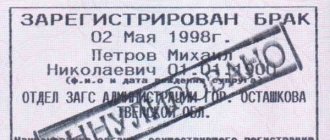Free legal consultation by phone:
8
Every person, due to his age or physiological needs, needs care. For a special category of citizens, the state provides guardianship. What is the procedure for registering guardianship over an elderly person will be discussed in more detail in the article.
Types of guardianship for older people
Content
As a general rule, guardianship is established over children under 14 years of age or completely incompetent citizens, then a trustee is appointed. Guardianship may be required not only for a child, but also for an elderly person who is recognized as having limited legal capacity or who needs outside help in everyday matters.
Let's consider what guardianship, trusteeship and patronage are.
Patronage
Patronage is relevant for capable elderly people who, due to health problems, cannot fully take care of themselves and do household chores. Deprivation of legal capacity does not apply here.
The specifics of establishing patronage are regulated separately by regional authorities. To receive an assistant, an elderly person needs to be recognized as in need of social services and sign up for a program for the provision of social services by contacting Social Security at the place of registration.
Note! Patronage and social services provided by Social Security are not the same thing. A citizen who provides social services and is employed in the specified institution cannot be an assistant (patron).
Guardianship
Guardianship of pensioners in this case is established after receiving a court decision on incapacity (full or partial). The priority right to be trustees is given to relatives; in the absence of such, the OOiP searches for a guardian on its own.
Unlike patronage, where the assistant undertakes to help the ward, guardianship implies the complete disposal of his property, and not just assistance. When providing patronage, the helping citizen does not have the right to make transactions with the valuables of the person under his care unless a trust management agreement has been drawn up.
Preliminary custody
Temporary (preliminary guardianship) is assigned for a period of up to 6, less often – 8 months to an incapacitated person on the initiative of relatives or guardianship authorities (GPA) (Article 12 of Federal Law No. 48). The reason is an urgent need for a guardian (representative), if other legal representatives are leaving for another city or country, need long-term treatment, and for other valid reasons.
Patronage, permanent and temporary guardianship: differences
| Condition | Patronage | Permanent guardianship | Temporary guardianship |
| Term | Determined by the parties individually | Indefinitely, or another period specified in the contract | 6 months, if there are grounds, extended to 8 months |
| Rights | The assistant makes transactions on his own behalf under a trust agreement in the interests of the ward. In the absence of an agreement, transactions are carried out by the owner | Transactions are made in the interests of the ward on his behalf | All rights and obligations of the trustee are provided, with the exception of the sale or exchange of the ward’s valuables |
| Responsibilities | Help in everyday life: bring food, cook, clean the house, etc. | All duties provided for guardians | |
| Range of applicants | The citizen himself in need of help, OOiP | Relatives, OOiP | |
| Payments, benefits | When caring for a pensioner over 80 years of age, a benefit is assigned to the Pension Fund | When concluding a paid guardianship agreement, the guardian has the right to receive up to 5% of the income received by the ward | |
| Inheritance | The right to inheritance arises when the ward draws up a will for an assistant or representative. When registering guardianship, it is important that the will is drawn up before the incapacity is declared | ||
Guardianship legislation
Guardianship involves two forms of assistance: on an ongoing basis or periodic fulfillment of obligations to care for an elderly citizen.
Guardianship involves the following actions::
- supervision and care;
- carrying out current affairs, daily assistance to the person under guardianship;
- playing the role of a legal representative when coordinating important, legally significant actions, interacting with official bodies and authorities.
Not everyone can become a guardian - there are a number of restrictions and mandatory approval from supervisory authorities. Only after receiving permission from the guardianship authorities does a person acquire a status that gives a number of powers and obligations to the state and the ward himself.
The procedure is strictly regulated and recorded in a number of legislative acts:
- general provisions of civil and family legislation (Civil Code and SK);
- Art. 32, 35 of the Civil Code of the Russian Federation, revealing the essence of guardianship and the features of the status of a person who has received the status of a guardian;
- Law No. 48-FZ, regulating the sequence of actions and conditions for obtaining status.
Download the article. 31-41 “Guardianship and Trusteeship” Civil Code of the Russian Federation (493.9 KiB, 593 hits)
Federal Law No. 48 On guardianship and trusteeship (806.5 KiB, 451 hits)
After completing the procedure, authorized employees of the government agency come to a decision on the need to establish guardianship, based on documentary evidence that the person under guardianship can no longer care for himself or herself. If the verdict is positive, a guardian is appointed within 30 days after filing the appeal.
Who can be a guardian for an elderly person?
Legally capable adults who meet the established requirements can obtain guardianship over an incapacitated citizen:
- No criminal record or serious illness;
- Having a regular income;
- A good reference from the place of work.
A prerequisite is having a permanent place of residence. This can be either your own or rented housing. It is not allowed to conclude a guardianship agreement with persons who were previously removed from guardianship duties due to their fault.
Requirements for the identity of the guardian
According to Russian legislation, an adult capable citizen of the Russian Federation can become a guardian. This is the main criterion. But when considering a candidate for guardianship, employees of the guardianship and trusteeship authorities also take into account other circumstances, for example, close relatives of a child left without parental care have a priority right to obtain guardianship:
- Grandmothers and grandfathers;
- brothers and sisters who have reached the age of majority;
- uncles and aunts;
- other close relatives.
Also, when choosing a candidate for establishing guardianship, the guardianship authorities take into account the opinion of the minor in respect of whom guardianship will be formalized. If the child is already ten years old, then his opinion is taken into account without fail. But even if the child is not yet ten years old, the PLO staff will definitely find out how attached the child is to the applicant; if it turns out that the child is afraid of a potential guardian, then it is unlikely that he will be given the child to raise.
Who can become a guardian
A legally capable citizen of the Russian Federation can become a guardian:
- at least eighteen years of age;
- trained in guardian school;
- has no criminal record and has not committed other illegal actions, especially acts directed against the life or health of citizens;
- do not have any mental illness, as well as alcohol or drug addiction;
- some other conditions.
Who cannot be a guardian
PLO employees will never entrust custody of a minor child to the following persons:
- under eighteen years of age;
- deprived of parental rights or limited parental rights;
- having a criminal record, especially for committing serious and especially serious crimes;
- former guardians, if they were removed from the duties of raising a minor due to their fault;
- having alcohol, drug or other addiction;
- unable to fulfill the responsibilities of raising a minor due to physical disability or the presence of a disability of the first group;
- who have not been trained and have not received a certificate for the right to be a guardian.
The last point has an exception: close relatives of a child left without parental care, as well as persons who are already raising other wards, are exempt from receiving a certificate.
Currently, the State Duma is considering a bill that will oblige all close relatives to undergo mandatory training. But at the moment, the bill has not yet been adopted, so now close relatives do not need a certificate when registering guardianship.
Registration of guardianship over an elderly person: step-by-step instructions
If we talk specifically about guardianship (not patronage), the initial stage is the recognition of an elderly citizen as incompetent.
Having received a court decision, the potential representative must contact the OOiP:
- Submit an application for appointment as a guardian, attaching additional documents.
- Pass a medical examination.
- Complete training at a guardian school (close relatives are not required).
- Provide a medical report and a certificate of completion of courses in the educational institution.
- Provide housing for inspection of living conditions by OO&P employees. The inspection is carried out within 7 days after the application, after 3 days a report is issued. Another 3 days are given to issue a conclusion on the appointment of a representative of the ward.
- Conclude an agreement on paid or gratuitous guardianship.
Important! In paid guardianship, remuneration is paid from income received from leasing the ward's property, from funds of third parties, and from the municipal budget. The amount of payments does not exceed 5% of the amount of income of the ward (Article 16 of Federal Law No. 48).
Documentation
When applying to Social Security, you will need a package of documents:
| Name | Where to get |
| Passport | Department of Internal Affairs of the Ministry of Internal Affairs, MFC |
| Marriage registration certificate | Marriage registry |
| Certificate of training at school for guardians (except relatives) | Social protection |
| Statement | Self-filling |
| Autobiography | |
| Certificate from employer about position and salary | Employing organization |
| Characteristics from work | |
| Medical report | Clinic at the place of registration |
| Written consent of all adult family members living with the applicant, taking into account the opinion of children over 10 years of age | To be completed in the presence of OO&P employees, notarization is allowed |
Statement
The application is filled out in the form established by Order of the Ministry of Health dated 08/08/2011 No. 891n.
What data will be needed:
- Full name, passport details, residential address of the applicant;
- Full name, date of birth of the citizen who needs to be placed under guardianship;
- Request to be appointed guardian;
- Housing conditions, knowledge and skills to determine custody.
At the end the citizen’s signature is placed. The application is drawn up in a single copy.
Sample application for registration of guardianship over an elderly incapacitated citizen:
Characteristics from the employer
The characteristics are filled out by the employer. It is needed to determine the personal qualities, position at work, and merits of the applicant by OO&P employees.
What information must be provided:
- FULL NAME. director, name of organization;
- Full name, employee position;
- Start date of work;
- Education;
- Relationship with the team, behavior in difficult situations;
- Professional and personal qualities;
- Merits at work.
It is recommended to pay the greatest attention to the personal qualities of the employee, because... They are the ones that matter to OO&P.
Sample characteristics of an employer for registration of guardianship over an elderly person:
Autobiography
The autobiography is filled out in simple written form by a citizen who wishes to become a representative.
What information will you need:
- Full name, date and place of birth;
- Information about parents (optional);
- Start and end dates of training, specialty;
- Dates of employment, positions and names of organizations.
Legal advice: if you took advanced training courses, indicate this in your CV. This indicates your desire for development, which will only be a plus for you when considering OO&P documents.
Sample autobiography for registration of guardianship:
Consent of relatives
The statement of consent must contain the following information:
- Name of the OO&P;
- FULL NAME. potential representative;
- FULL NAME. all family members;
- Signatures.
The consent is filled out at the notary or in the presence of a POiP employee.
Sample statement of consent of relatives for registration of guardianship:
Documents for guardianship of elderly parents
A person concerned about how to arrange guardianship over his elderly parents will be able to do this only after registering patronage.
- Write a statement (there is a template established by law).
- Visit the guardianship department at your place of registration.
- Submit documents about your health status.
Then a patronage agreement is drawn up, which is signed by both parties.
How is incapacity to establish guardianship removed?
To obtain guardianship over an elderly person, one must be deprived of legal capacity through the court. Without this, only patronage is possible. Deprivation or limitation of legal capacity is permitted at the request of POiP, relatives, spouses, social and medical workers.
What the procedure looks like step by step:
- The initiator submits an application to declare the citizen incompetent. A citizen suffering from mental disorders cannot go to court.
- At the preliminary hearing, the judge orders a medical examination. If the person being examined refuses, the examination, as determined by the court, is carried out forcibly.
- The case is considered taking into account the medical report and other evidence indicating incapacity.
- A court decision is made.
The decision takes effect after 30 days. During this time, a citizen declared incompetent, or another person, has the right to challenge it. Afterwards, the decision is sent to the OOiP for the appointment of a guardian.
Grounds for declaring a person incompetent
A citizen can be recognized as incompetent or partially capable through a court if he has mental illnesses due to which he is not able to be aware of his actions.
Once incapacity is established, a person is deprived of the right to engage in transactions with property. A representative is appointed to manage the assets in the interests of the ward.
Note! Limited legal capacity is established if a citizen has a non-severe mental disorder in which he, with the help of an outsider (guardian), is aware of his actions and can manage property.
Documentation
When going to court you will need:
- Statement;
- Receipt for payment of state duty;
- Documents confirming relationship;
- Passports of the applicant and the person deprived of legal capacity;
- Medical certificates.
Everything is provided in originals. Copies are made of them, after which the documents are returned to the applicant.
State duty
For consideration of a case of deprivation of legal capacity, a state fee of 300 rubles is paid.
Where to contact?
Documents are submitted to the court at the place of residence or treatment by the person declared incompetent.
Application to court
The application is filled out in accordance with the standards established by the Code of Civil Procedure and must contain comprehensive data:
- Full name, registration address, telephone number of the applicant;
- Full name, place of residence of the person deprived of legal capacity;
- Information about family relationships, details of supporting documents;
- Description of facts indicating mental illness;
- Please recognize the citizen as partially or completely incompetent.
At the end, the signature of the attached documents is indicated and a signature is placed.
Sample application to the court to recognize a citizen as incompetent:
At what age can a citizen of the Russian Federation become a guardian?
In Art. 35 of the Civil Code of the Russian Federation states that a fully capable citizen of the Russian Federation who has reached the age of majority can become a guardian. Article 21 of the Civil Code of the Russian Federation states that a citizen becomes an adult after he reaches the age of eighteen. It is from this moment that he receives the right to perform all civil duties and receive all civil rights.
But paragraph 2 of Article 21 of the Civil Code of the Russian Federation stipulates some conditions under which a person under eighteen years of age can obtain full legal capacity. So, if a citizen has not yet reached the age of eighteen, but:
- began to perform labor duties under the employment contract;
- entered into a marriage registered with the registry office;
- registered an individual entrepreneur in his name,
then he receives full legal capacity from the age of sixteen.
Such a citizen is considered emancipated and has all the rights, as well as all the responsibilities that are inherent to an adult citizen of the Russian Federation. emancipation can be carried out by a court decision, or in accordance with a resolution of local government bodies.
If there is consent from the parents, adoptive parents or guardian, then it is formalized in the local municipality. If the minor does not have a legal representative, or parents or guardians refuse to consent to emancipation, it may be established by court decision.
A certain legal conflict arises: on the one hand, the citizen is already legally competent, and on the other, he has not yet reached the age of eighteen. In such situations, what does the law say about the registration of guardianship for emancipated minors? In the Civil Code, this conflict is specified separately: the emancipation of a citizen of the Russian Federation cannot become the basis for reducing the minimum age of a guardian ; before receiving the right to establish guardianship, he must reach the age of eighteen years.
How do guardianship authorities check a guardian?
After establishing incapacity and registering guardianship, the trustee will have to provide housing to check the living conditions and maintenance of the ward.
Control is carried out in accordance with the Rules approved by the Decree of the Government of the Russian Federation of November 17, 2010 No. 927 with the following frequency:
- Once during the first month after signing the contract;
- Every 3 months during the first year;
- From the second year - every 6 months.
During the inspection, POiP employees find out in what conditions the ward lives, how the representative manages his property and fulfills his duties. If there are serious violations, the contract with the trustee may be terminated and the trustee may be required to compensate for the harm caused to the ward by guilty actions.
Rights and responsibilities of a guardian
The guardian has the right to dispose of the ward’s property in his interests: sell, change with the written permission of the OOiP. If there is a paid guardianship agreement, he receives up to 5% of the income from the rental property.
Responsibilities include:
- Ensuring the safety of property;
- Protecting the interests of the ward before organizations and other citizens;
- Control of income of the ward;
- Providing the ward with food and care.
Important! Failure of the representative to comply with his duties is grounds for the annulment of the guardianship agreement.
The difference between guardianship and patronage
Let us list the main differences between patronage and full guardianship:
- The range of rights and responsibilities for social protection is determined by the terms of the signed agreement. The powers of the guardian are much broader, since an incapacitated pensioner cannot independently decide for himself;
- Guardians can enter into transactions and enter into other legal relations on behalf of the wards; during patronage, the range of powers is regulated by the terms of the agreement and can be significantly limited;
- All social payments of the pensioner are transferred to the account of the guardian, who has the right to dispose of them in the interests of the elderly ward. There are no social benefits for patronage.
Read also: Submitting an application to the registry office for marriage registration
What benefits can a guardian receive?
Unlike guardians of children, persons guarding incapacitated elderly citizens have the right to receive only 5% of the latter’s income, as well as receive benefits for caring for the elderly or disabled people of group 1. No other payments are provided.
Regions may establish other benefits:
- For payment of transport tax (full or partial exemption);
- Discounts on notary services;
- Free travel to and from the sanatorium with the ward.
Details must be obtained from Social Security at your place of residence.
Types of guardianship
There are several types of care (guardianship) for older people in Russia.
Patronage or social protection
That is, support for the normal functioning of the face. This type of support can be installed at will, subject to the need for systematic care. The following services can be provided as part of patronage:
- grocery shopping;
- purchasing medicines;
- cleaning the living quarters of a pensioner;
- carrying out individual orders, for example, paying utility bills or other requests.
Full custody
This type of care is possible when an elderly person is recognized as partially or completely incompetent by a court, and the reason for the recognition is absolutely not important (mental disorder or lack of physical ability to care for oneself).
On a note! A senior citizen, at the age of 80, even with partial legal capacity, also has the right to obtain full guardianship over him.
How to apply for care benefits for a pensioner over 80 years of age?
The benefit is assigned on the basis of Decree of the Government of the Russian Federation dated June 4, 2007 No. 343.
The following citizens have the right to apply for it:
- Age – from 14 years;
- Lack of work.
Lack of family ties is not a basis for refusal to grant benefits. Any person can apply for it in agreement with a grandmother or grandfather over 80 years old, or with a disabled person of group 1.
The payment amount is 1,200 rubles. You can format them as follows:
- Contact the Pension Fund at the place of registration of the senior citizen with an application and documents.
- Receive a decision within 10 days.
If a benefit is refused, a reasoned response is issued. If the decision is positive, the money will be transferred to the senior citizen’s pension. He can give them to the caregiver in the amount established by agreement.
Note! To apply for benefits, you do not need to establish guardianship or deprive yourself of legal capacity.
Documentation
When applying to the Pension Fund you will need:
- Application indicating the date of departure;
- Passport;
- The pensioner’s statement of consent to care provided by the applicant;
- Certificate of non-assignment of a pension or unemployment benefit to the applicant;
- Certificate of disability of 1st group;
- Medical report on the pensioner’s need for constant care;
- Parental consent to care for a person aged 14 to 18 years.
You will also need a work book or other document confirming the fact of termination of work.
Rights and obligations
We list the rights and responsibilities of the parties when registering guardianship and trusteeship for older people.
A senior citizen has the rights to:
- independent choice of your trustee;
- conclusion and termination of an assistance agreement;
- execution of wills addressed to your trustee.
The guardian has the following rights, which are specified in the agreement:
- disposal of property with the consent of its elderly owner;
- receiving remuneration, despite the fact that guardianship is gratuitous assistance to the elderly, however, the agreement may contain conditions for the payment of certain amounts;
- living on the territory of one’s ward or moving the latter to the place of residence of the guardian in order to provide better quality care;
- Carrying out your professional activities, as a rule, this is possible when registering for patronage. With full guardianship, it becomes impossible to work and care for an elderly person at the same time;
- request for compensation for costs associated with patient care;
- use of the ward’s funds, without the consent of the guardianship authorities, but only in the interests of the pensioner himself;
- receiving benefits in the amount of 1,200 rubles if he does not have a permanent job or has lost it. The said amount can be increased multiple by the number of people under supervision.
The guardian has the following responsibilities:
- fulfillment of all requests of the ward, from everyday ones to legally significant ones;
- informing the ward about the execution of orders;
- caring for the elderly in order to improve their health;
- notification of a change of residence of the guardianship authorities;
- drawing up a report on the expenditure of funds;
- preparation of a report on the expenditure of funds to reimburse care costs.
Questions for a lawyer
Can a person declared incompetent be present at a court hearing?
Yes, if it does not harm his well-being and psychological state, and does not pose a threat to others.
What happens after the court decision comes into force?
Within 3 days, the decision is sent to the POiP, which are obliged to appoint a representative for the incapacitated person within 1 month.
Can a guardian who has reached retirement age apply for an allowance (RUB 1,200)?
No. When reaching retirement age, an old-age benefit is assigned, and it is not possible to issue a payment for caring for a person over 80 years of age.
When can they refuse to determine guardianship of an incapacitated person?
The basis for refusal is non-compliance with established requirements: a criminal record, incapacity, poor work performance. The decision for each citizen is determined individually.
Who is considered first for guardianship?
Such a right according to Art. 10 Federal Law No. 48 is provided to loved ones: spouses, parents, grandparents, adult grandchildren, sisters, brothers.
Until what age can you become a guardian?
So, we have decided on the minimum possible age when a person can become a guardian. What does the law say about the maximum possible age?
In Art. 35 of the Civil Code of the Russian Federation provides an exhaustive list of requirements for guardians. There is no age limit, that is, if a person wants to take custody of a minor and he meets all the requirements for guardians, he cannot by law be denied guardianship on the basis of his advanced age.
However, in practice, guardianship and trusteeship authorities adhere to an unspoken rule in which guardianship is issued if the applicant is not older than sixty years. It is used to protect the interests of minors, and especially young children. The reasons for this rule are quite clear:
- Not all citizens who have reached the age of sixty can fully perform guardianship duties. Physical capabilities deteriorate, memory decreases. Guardianship, especially of young children, requires a lot of physical effort and considerable activity, which cannot be said about many grandparents over sixty years of age.
- PLO employees are also concerned by the fact that citizens over sixty years of age, due to their age, often have a whole bunch of chronic diseases, which can lead to the premature death of their guardian. And this will cause severe psychological trauma to the child, who has already lost his parents.
- In the event of the death of the guardian or the impossibility of continuing to fulfill guardianship duties, the child will be forced to leave the guardian and get used to a new place of residence, a new family.
That is why employees of the Public Educational Institution try to draw up a guardianship agreement with such applicants who can bring a minor child to the age of eighteen without serious shocks for the child.
But the age of a candidate for guardianship is over sixty years old does not mean that the child will be entrusted to him a priori. Everything will depend on the physical condition of the applicant, his health, the presence or absence, as well as the severity of chronic diseases.
For example, if the grandfather of a ten-year-old grandson at the age of seventy looks good, does not have serious chronic diseases, plays sports, and even works, then it is unlikely that the guardianship and trusteeship staff will have the idea that such a grandfather should be denied guardianship over him. grandson.
Thus, everything is determined by an individual approach to each case. All candidates for guardians differ not only in age, but also in health, income level, mental and physical development. Some seventy-five-year-old grandmothers are more suitable for the role of caregiver than fifty-year-old women who have a whole bunch of chronic diseases and have come to terms with the fact that their lives are over.
Example
An elderly woman, Irina Matveeva, contacted the Department of Guardianship and Trusteeship. She asked to obtain guardianship over a five-year-old girl, Natasha Nikandrova, whose mother was deprived of parental rights, and the girl was placed in an orphanage. Guardianship and trusteeship specialists tried to dissuade the woman, citing the fact that she was already over sixty years old and it would be difficult for her to raise the baby.
The woman explained that she is already the guardian of little Natasha’s two older sisters, the girls are eleven and nine years old, they are completely independent and are already helping Irina with the housework. She asked not to separate the sisters and assured that she would cope with raising the third sister, as she copes with the two older ones.
The PLO officers visited the family and saw that Irina Matveeva’s house was clean and tidy, the girls were well-groomed, friendly, there was a very warm, family relationship between them and Irina, they called the guardian mom. The sisters also asked the PLO officers not to separate them from their sister and to transfer the baby into the care of their family.
The guardianship and trusteeship authorities met the requests of the guardian and her pupils and formalized the guardianship of Irina Matveeva over little Natasha.
Statement
There are no specific requirements for the format and content of the application for guardianship, but it must include the following information.
In the upper right corner it is indicated:
- the name of the guardianship authorities to which the document is presented;
- location of the government agency;
- personal data of the applicant, namely full name, passport details, nationality, registration address, contact details (phone number, email address).
Next, in the middle of the sheet you need to indicate the name of the document, namely “Application”.
According to the text of the letter, it is important to have the following information about yourself, namely:
- a request to establish guardianship over a pensioner;
- a brief description of yourself containing information about the absence of a criminal record, bad habits, etc.;
- a list of responsibilities that the guardian is ready to assume in connection with the need for care.
Below you must agree to the processing of personal data.
At the end of the document you must include a signature and the date the document was compiled.
Regarding the execution of an application for patronage, we can only clarify that it is drawn up similarly to the previous example, only in the main part it must contain:
- Request to establish patronage;
- Details and summary of the agreement between the pensioner and the guardian;
- Signature of both the applicant and the senior citizen.
Terms of patronage and payment
We list the conditions that must be met if you want to establish guardianship over an elderly person:
- Registration of social patronage is impossible in relation to persons suffering from mental disorders; in this case, only full guardianship is possible;
- The consent of the senior citizen is required;
- Registration of patronage is impossible on the part of persons working in social protection agencies;
- Both relatives and complete strangers can apply for patronage;
- It is necessary to sign some kind of agreement between the elderly person and the person supervising him;
- It is possible to sign other agreements, such as trust management, etc.
Registration of guardianship and patronage implies the voluntary consent of the person to care for the elderly free of charge. That is, benefits and any payments in this case are not provided.
If a citizen is employed, then you should not count on receiving payments, but if he has lost his job, then he has the right to count on an additional payment in the amount of 1,200 rubles from the Social Insurance Fund.
Guardian Benefits
There is a misconception that a range of benefits will be provided when applying for care. However, it is not. Registration of guardianship over an elderly person after 80 years of age is not accompanied by the presence of any privileges and advantages, despite the level of responsibility that the guardian assumes:
- A payment in the amount of 1,200 rubles is due only to an unemployed guardian in the event of loss of work or dismissal. Despite the availability of a number of benefits for child custody, payments of any monetary amounts are not required. Also, no other benefits are assigned or privileges are granted;
- There is no right to inherit the property of a ward; or rather, it is possible to inherit property only by drawing up a will in accordance with all the rules;
- According to current legislation, the period of caring for an elderly citizen is counted as pension experience, but at the same time, there is no right to early retirement.
Read also: Rights of children without parental care
Registration of guardianship over elderly people is a voluntary and practically free event, the main purpose of which is to help in the care and ensure the normal functioning of an old person.










